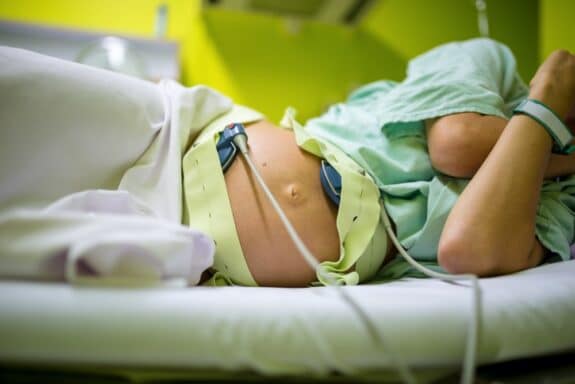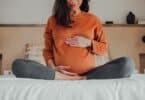COVID-19 has given the world a sort of post-apocalyptic feel. Stores, restaurants, churches, government agencies, and so many other establishments have closed their doors to minimize the spread of the virus. Hospitals feel different, even – quieter, despite the epidemic. Is it any wonder that the joy of childbirth and pregnancy are being overshadowed by feelings of fear and concern for so many parents?
Mothers and their babies are no longer allowed visitors in the maternity ward, and they are only permitted one birthing partner in the delivery room. Even the classes designed to help new parents prepare for the impending birth are being canceled to control the spread of COVID-19. And the challenges don’t stop there.
Every shred of human contact is a danger – from the doctors and nurses delivering the baby to grandparents and strangers in the grocery stores. Newborns, who are still so new that they could be especially vulnerable to the risks of COVID-19, aren’t being paraded around by the new, proud parents. There aren’t visitors to the family home. No baby showers. No at-home helpers to aid the new family in their first few weeks of adjustment.
Trips to the pediatrician – if occurring at all – pose a danger to the baby as well. Midwives are still doing home-visits in some areas, but again, that contact could be risky.
Even shopping for a newborn has become a challenge. Diapers, wipes, formula – they’re all being swooped up by parents who are trying to minimize their contact with the outside world. Unfortunately, there simply isn’t enough to go around. And each store, each exposure to the outside world, means taking a risk of bringing the virus home to their baby.
Many parents feel robbed of the traditional birthing and parenting experiences. Those that have given birth previously see the differences in having a baby during the COVID-19 era. Even the new parents realize that something is . . . off. They feel alone. Isolated. Ill-equipped.
Where we go from here depends largely on the precautions that society takes now. Frequent hand washing, social distancing, and use of protective gear (masks, gloves, etc.) can minimize the risk of contracting the coronavirus. Keeping your baby at home, and not allowing them to have contact with anyone other than the people living inside the home can minimize their risks of catching the virus.
Parents are also encouraged to follow and comply with all protocols and advised safety precautions. As robbed or disadvantaged as you might feel, these recommendations are in place to protect your family. Curb loneliness and feelings of isolation by connecting with family members in ways that do not compromise the health of you or your child (i.e. video messaging so that family members can “meet” the baby).
Above all else, stay optimistic. Try to enjoy your baby bubble as much as possible. And, if you think you may be suffering from depression or anxiety because of your isolation, give your OBGYN or general practitioner a call to see if medication may be needed.
Remember, humanity has survived far worse than this, and all things do come to an end.







